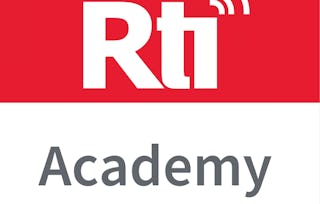“International Communication and East Asian Affairs (1): Trends in International Communication” is the online course provided by the Graduate Institute of Journalism, National Taiwan University and Radio Taiwan International.

International Communication and East Asian Affairs (1)
4 days left! Gain next-level skills with Coursera Plus for $199 (regularly $399). Save now.

(10 reviews)
Recommended experience
Skills you'll gain
Details to know

Add to your LinkedIn profile
See how employees at top companies are mastering in-demand skills

There are 5 modules in this course
This is the first lecture in this series of course, offering learners an introduction to international communication and the recent issues in Taiwan. This lecture will provide learners the basic understanding of international communication, including the definition, history and key issues of current international communication. Then we will delve into special topics on digital technology and global information flow, including citizen journalism and disinformation and social responses in Taiwan. By the end of this course, learners will have gained a profound understanding of these evolving concepts and recent development of international communication and important issues in Taiwan.
What's included
8 videos2 readings1 assignment
This is the second lecture in this series of course, offering learners an in-depth understanding of the media landscape in both authoritarian and democratic countries and exploring the theoretical foundations of international communication. In this lecture, we will delve into how media theories interpret the historical and current roles played by news agencies, social media, and national media. Furthermore, we will closely examine their interaction with globalization, specific political systems, and international media. By the end of this course, you will have gained a profound understanding of these evolving concepts and their significant impact on today's media landscape. The lecture is also presented in a form of speech given by our three speakers, Thompson Chau, Chris Buckley and Phil Smith, on September 18th, 2023. The speakers will talk about their analysis and perspectives on how politics and civil society can interact within the realm of journalism, as well as the challenges or risks journalists might encounter in authoritarian countries. And at last, they would also give assessment on how the media in Taiwan is doing and what can media workers do to improve.
What's included
12 videos1 assignment
This module offers an in-depth exploration of the dynamic interplay between media transformation, platformization, and their influence on cultural identity within the sphere of global communication. Designed for students and professionals keen on understanding the complexities of contemporary media, this module provides a critical perspective on how digital technology and the rise of platforms are reshaping the way we communicate, perceive, and engage with media. Through a series of structured modules, participants will examine the evolution from traditional media to digital platforms, analyze the effects of media convergence and digitization, and explore how these changes impact cultural identities across the globe. The course blends theoretical knowledge with practical case studies, providing a comprehensive understanding of the current media landscape.
What's included
5 videos4 readings1 assignment1 peer review
This module begins with an exploration of branding principles and then focuses on Taiwan as a compelling case study of nation branding. In this module, learners will explore the intricate dynamics of nation branding, using Taiwan's experiences to illustrate broader concepts applicable to nations worldwide. Throughout this module, learners will delve into the fundamentals of nation branding. Specifically, learners will gain a comprehensive understanding of the multifaceted nature of nation branding by exploring the strategies employed by countries to enhance their visibility, attract investment, and foster diplomatic relations on the global stage. While Taiwan serves as a focal point for analysis, our discussions will extend beyond its borders to encompass universal principles and strategies in nation branding. Whether learners are interested in diplomacy, marketing, or international relations, this module offers a nuanced perspective on the role of communication in shaping national identities and perceptions.
What's included
6 videos4 readings1 assignment
What's included
1 assignment2 peer reviews
Instructors


Offered by
Explore more from Governance and Society
 Status: Preview
Status: PreviewNational Taiwan University
 Status: Preview
Status: PreviewNational Taiwan University
 Status: Free Trial
Status: Free TrialNational University of Singapore
 Status: Preview
Status: PreviewUniversity of London
Why people choose Coursera for their career

Felipe M.

Jennifer J.

Larry W.

Chaitanya A.
Learner reviews
- 5 stars
80%
- 4 stars
20%
- 3 stars
0%
- 2 stars
0%
- 1 star
0%
Showing 3 of 10
Reviewed on Jul 28, 2024
I learn a lot from this course. Very rich ingredients, excellent host, and interesting expert panel discussion. Great.
Frequently asked questions
To access the course materials, assignments and to earn a Certificate, you will need to purchase the Certificate experience when you enroll in a course. You can try a Free Trial instead, or apply for Financial Aid. The course may offer 'Full Course, No Certificate' instead. This option lets you see all course materials, submit required assessments, and get a final grade. This also means that you will not be able to purchase a Certificate experience.
When you purchase a Certificate you get access to all course materials, including graded assignments. Upon completing the course, your electronic Certificate will be added to your Accomplishments page - from there, you can print your Certificate or add it to your LinkedIn profile.
Yes. In select learning programs, you can apply for financial aid or a scholarship if you can’t afford the enrollment fee. If fin aid or scholarship is available for your learning program selection, you’ll find a link to apply on the description page.
More questions
Financial aid available,
¹ Some assignments in this course are AI-graded. For these assignments, your data will be used in accordance with Coursera's Privacy Notice.






